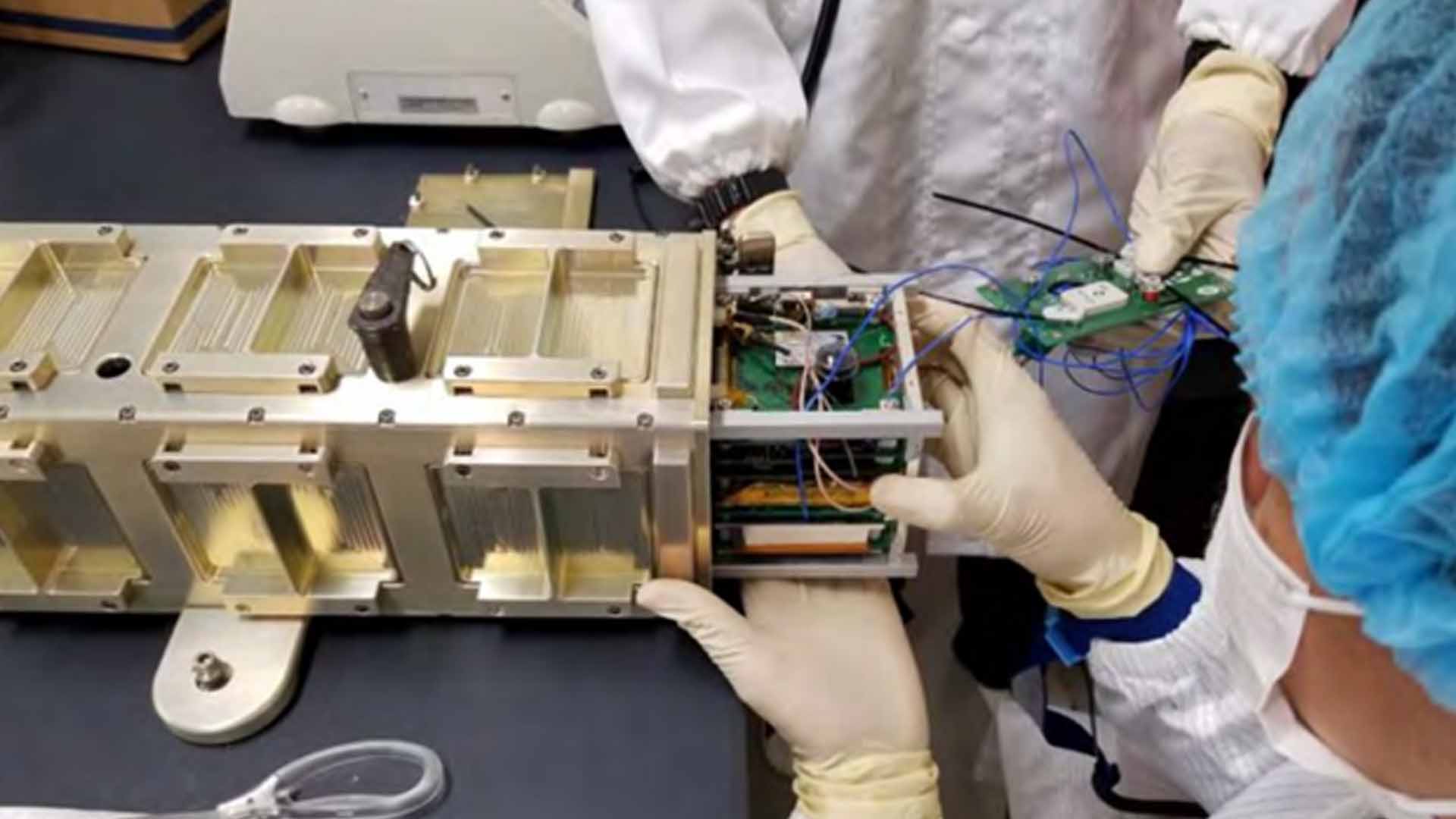The date 21 February 2021 (1:36 AM Philippine Standard Time) is now forever etched in the history of space science in the Philippines with the launch of the country’s second cube satellite, called Maya-2 CubeSat, that was developed by three Filipino student engineers.
The Maya-2 CubeSat was launched through the International Space Station (ISS) along with Paraguay’s GuaraniSat-1 CubeSat and Japan’s Tsuru CubeSat for the BIRDS 4 Satellite Project – KyuTech aboard the Northrop Grumman CRS-15 mission.

The Maya-2 CubeSat team is composed of BIRDS-4 Project Manager Izrael Zenar C. Bautista who obtained his degree in MS Energy Engineering from the University of the Philippines Diliman; BIRDS-4 Project member Mark Angelo C. Purio, on the other hand, obtained his degree in MS Electronics Engineering from the De La Salle University and his MA in Education from Adamson University; and BIRDS-4 Project member Marloun Sejera who earned his degree in MS in Electronics and Communications Engineering from the Mapúa Institute of Technology.
Incidentally, the three Filipino space engineers are now pursing doctoral degrees in Space Systems Engineering and Space Engineering at the Kyushu Institute of Technology (Kyutech).
According to Secretary Fortunato T. de la Peña of the Department of Science and Technology (DOST), Maya-2 is the country’s fourth satellite that was launched through the International Space Station (ISS). Diwata 1 and 2, both microsatellites, were launched in 23 March 2016 and 29 October 2018, respectively, while Maya-1 was launched in 29 June 2018.
“Since DOST started the Philippine Space Technology Development Program in 2014, we have already sent orbiting into space two micro satellites, Diwata-1 and Diwata-2, and two nanosatellites Maya-1 and Maya-2,” de la Peña said.
The science chief also said that the DOST’s Advanced Science and Technology Institute (ASTI) and the University of the Philippines Diliman’s Institute of Electrical & Electronics Engineering (UP IEEE) are the implementors of the satellite development projects in cooperation with two Japanese universities, Hokkaido University and Tohoku University. This initiative is also part of the Stamina4Space Program, funded by DOST, monitored by the Philippine Council for Industry, Energy, and Emerging Technology Research and Development (PCIEERD) and implemented by the Advanced Science and Technology Institute (ASTI).
The Space Technology and Applications Mastery, Innovation and Advancement (STAMINA4Space) Program is a space research & development program that aims to further develop deep expertise that enable and sustain the growth of a local scientific-industrial base in space technology and applications in the Philippines.
The development of Maya-2 CubeSat is part of the 4th Joint Global Multi-Nation Birds Satellite project called “BIRDS-4 Satellite Project” that is a cross-border interdisciplinary CubeSat project hosted by the Kyushu Institute of Technology in Japan, in collaboration with the three countries.
The Maya-2 CubeSat weighs 1.3kg equipped with a camera for image and video capture, attitude determination and control units for active attitude stabilization and control demonstrations, Perovskite solar cells and Latchup-detection chip, and an Automatic Packet Reporting System Message Digipeater (APRS-DP).
According to Professor Paul Jayson Co, project leader of the STAMINA4Space Space Science and Technology Proliferation through University Partnerships (STeP-UP), the satellites use commercial off-the-shelf (COTS) components to verify proper function in space and the information gathered from BIRDS-4 will form the basis for usage of these COTS components for future space missions.
Co was also quoted, saying that the satellites also carry a store-and-forward payload that can be used to gather data from ground sensors for more practical applications like for weather and infectious disease analysis.
Furthermore, Co disclosed that aside from the Maya-2 CubeSat, there will be two more, Maya-3 and Maya-4, that will be launched within the year.
Moving forward, these projects are seen to further intensify the efforts of the country to harness the power of satellite technology for other purposes like those for agriculture, forest cover and natural resources inventory, weather forecasting, and disaster damage assessment and monitoring, among others.
De la Peña also revealed that the Philippines is aggressively pursuing its space development program because of its many benefits to the Filipinos. In a press statement, the science chief said, “The succeeding micro satellites Diwata-3 and Diwata-4 and succeeding nanosatellites are now in various stages of development, now done completely in the Philippines.”





